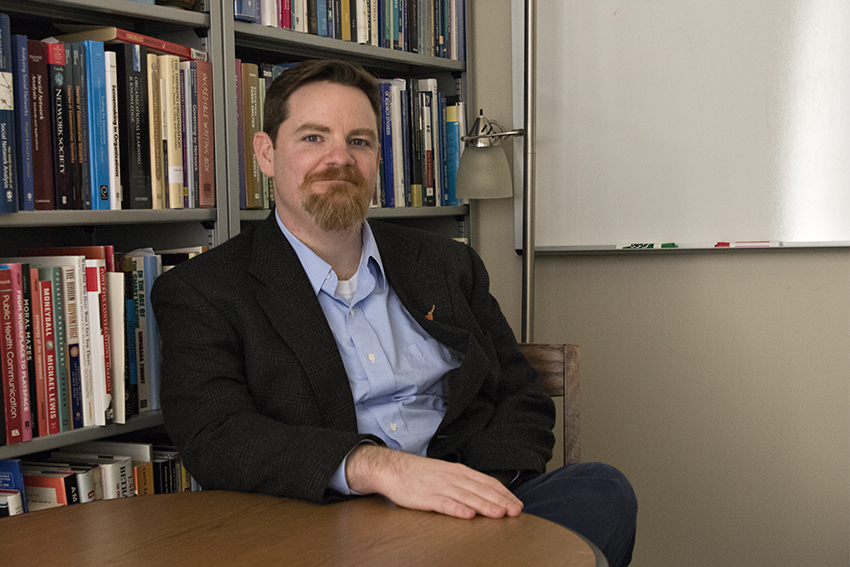When Joshua Barbour, assistant professor of communication studies, was approached by professionals from the Centers for Disease Control and Prevention (CDC) at the 2011 Aspen Conference on Engaged Scholarship, he didn’t know the conversation would lead to an award-winning paper.
On Nov. 10, the National Communication Association’s (NCA) Applied Communication Division presented Barbour with the Bill Eadie Distinguished Scholarly Article Award. Each year, the Applied Communication Division, an interest group within NCA, gives out awards to its members whose study impacts people’s lives. This is the second year in a row Barbour has won the award and the fourth year in a row it has been given a UT faculty member.
Barbour, in consultation with the Center for Global Health (CGH), conducted a study about the effectiveness of expository versus narrative messages on global public health issues. In particular, stakeholders at the CDC were concerned that narrative messages were diluting the reputation of the CDC because the messages sounded less scientific than the expository ones. The study found that narrative messages did not directly impact reputation, and that participants could understand the information better and were more likely to share narrative messages.
“(The CDC) shared with us this desire to have evidence about narrative versus expository messaging, and we took that on as a challenge,” Barbour said.
While Barbour is proud of the paper he and his team put together, he doesn’t think it was just the writing that won him the award.
“They’re all papers that are trying to make a difference,” Barbour said. “They’re papers that are trying to help the participants in the study or some community affected by the research being done.”
Erin Donovan, associate professor of communication studies and 2015 award recipient, said that the award depends on whether a study’s findings are doing something to affect lives.
“Almost every research paper you’ll ever read will say things like ‘These findings have potential to do x, y and z,’ but one of the things that makes this award special and competitive is they often look for (if the study) has done anything tangible yet,” Donovan said. “It’s not just (that) it has potential. The question is are they doing that already.”
Donovan’s research into making medical disclosure and consent forms more understandable for patients has made an influence. Using her research, the Texas Legislature will vote to approve Donovan and her team’s more concise version as the new medical disclosure and consent form standard.
Barbour believes that UT faculty continue to win this award because of the faculty’s effort to conduct research that will have an impact.
Natalie Stroud, associate professor of communication studies and journalism and winner of the 2016 Bill Eadie award recipient, said that she believes to win the award, the research has to be rigorously conducted, advance theoretical understanding and have real-world implications.
“Moody College faculty are focused on making a difference in the world with their scholarship, and the multi-year wins by our faculty are a testament to this commitment,” Stroud said.
Barbour also said that UT’s mantra plays a role in research conducted by faculty.
“You know the saying ‘What starts here changes the world? I don’t think that just students appreciate that line — it’s also faculty that find value in that idea,” Barbour said.





















